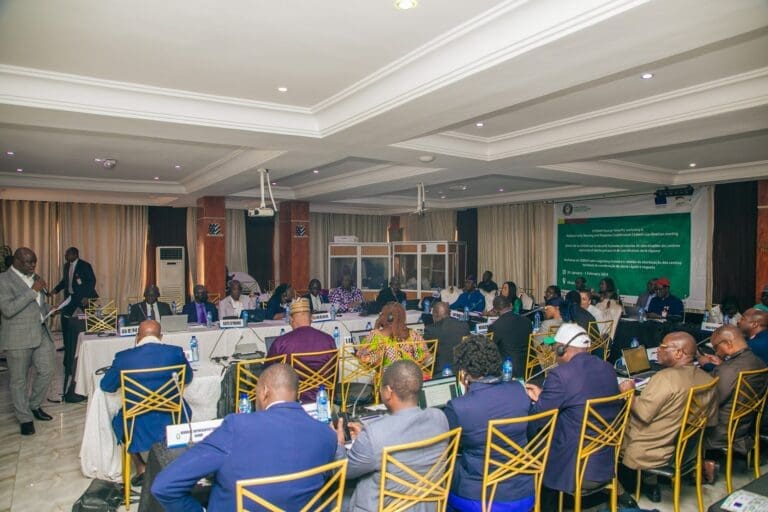APA – Lagos (Nigeria)
The three-day workshop on regional human security analysis and coordination ended in Abuja, the Nigerian capital on Thursday, February 1, 2024.
Convened by the Directorate of Early Warning of the Economic Community of West African States (ECOWAS), the event brought together experts from National Centre for Coordination of Response Mechanism (NCCRMs) of the member countries and the ECOWAS Commission to tackle pressing human security challenges across the region.
Utilizing the Human Security Analysis Framework (HSAF), the participants conducted a comprehensive assessment across five thematic areas. This rigorous exploration aimed to deepen understanding of the regional human security landscape, identify potential resource mobilization strategies, and develop effective response measures.
Collaboration and coordination were central themes throughout the workshop. The establishment of robust mechanisms for information sharing and intervention coordination between the Early Warning Directorate (EWD) in Abuja, Nigeria and National Centres was prioritized.
Additionally, the participants emphasized the importance of forging stronger partnerships with key stakeholders involved in early warning and response systems.
Her Excellency Damtien L. TCHINTCHIBIDJA, Vice President of the Commission, addressed the session, emphasizing the need for stronger collaboration with the member states to mitigate the growing human security challenges in the region.
She stressed the importance of strengthening early warning systems, good governance, and the promotion of gender equality towards, sustainable development in the region.
The opening ceremony speeches were delivered by Dr. Onyinye Onwuka (Acting Director of Early Warning), Dr. Enobong MOMA (EU Delegation Programme Officer), Miss Lilian Seffer representing the GIZ and German Embassy, and Mr. Mohammed Sulaiman Isa representing the Permanent Representative of Nigeria to ECOWAS.
According to the statement by the ECOWAS Commission, the workshop culminated in the formulation of critical recommendations, outlining priority response actions for ECOWAS and member states in 2024.
“These actions target a range of interconnected challenges, including conflicts, terrorism, climate change, political instability, and poverty, all of which significantly threaten regional peace and stability.
“The workshop was co-funded by European Union and the German Federal Ministry for Economic Cooperation and Development (BMZ) within the framework of the ECOWAS Peace and Security Architecture and Operations (EPSAO) Project. It was implemented with support of the Deutsche Gesellschaft für Internationale Zusammenarbeit,
“The successful conclusion of this workshop marks a significant step forward in fostering regional cooperation and bolstering human security across West Africa. The insights and recommendations garnered from this comprehensive discussion will inform targeted interventions and collaborative efforts, ultimately contributing to a more peaceful and secure future for the region,” it added.
GIK/APA


